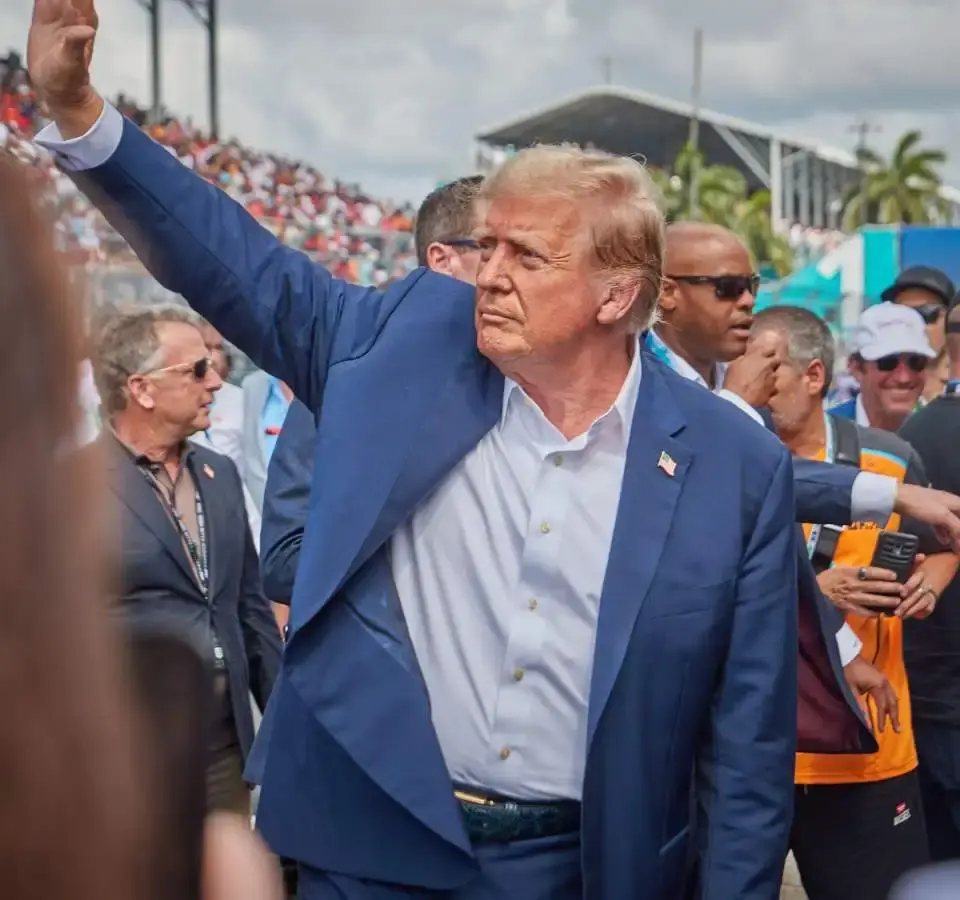In a recent turn of events, Donald Trump’s newly introduced trade tariffs have left many industries in a state of uncertainty. However, Haas F1 has confirmed that its Formula 1 operations remain unaffected by these developments.
The introduction of sweeping tariffs by Donald Trump has caused a significant stir across various markets, sending the US stock market into a tailspin. These tariffs include a base 10% levy on all imports, with increases depending on the trade deficit each country has with the United States. Despite this, the American-based Haas F1 team, which operates from facilities in the UK, Italy, and North Carolina, assures that their day-to-day racing activities will continue without disruption.
While the Formula 1 team stays on course, the Automation division of Haas is taking a beating. Their official statement reveals a severe drop in demand for machine tools both domestically and internationally. Consequently, the plant in Oxnard, California, which has been running since 1983 and employs 1,700 workers, has been forced to cut production and halt overtime. Hiring has come to a standstill, and new job openings are on pause as the company reassesses the impact of these tariffs on its business.
Haas Automation expresses hope that the Trump Administration will soon formulate measures to support American manufacturers. The company’s concern extends towards a possible unilateral reduction of tariffs on machine tools from nations like Japan, Taiwan, and Korea, without corresponding cuts on tariffs for crucial raw materials. Such scenarios could devastate the $5 billion US machine tool industry, which plays a vital role in national security.
In anticipation, Haas Automation advocates for specific tariff exemptions. They urge that tariffs on essential raw materials and components for the machine tool industry be reconsidered. Additionally, maintaining current tariffs on imported machine tools is deemed crucial to safeguarding the industry’s infrastructure in the US.
The Haas F1 team’s racing operations remain insulated from the turbulence caused by recent tariffs. Yet, the impact on Haas Automation highlights the broader economic challenges such policies can prompt. As the situation develops, many are watching closely to see how these tariffs will shape the manufacturing landscape in the United States.










